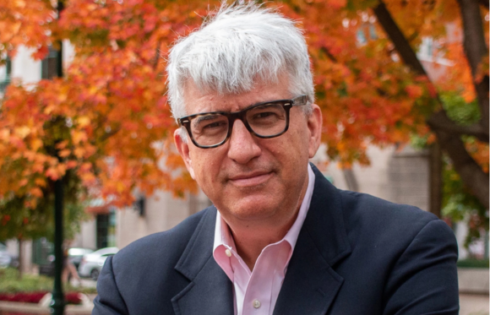 It’s 1 a.m. in the Knight Library. You’ve been there for hours staring at a computer screen, and now your eyes feel like they’re going to jump out of your sockets and beat you to death. At this point you could barely care less about the impact of rice supply on the Tay Son Uprising, but you’ve still got another five pages to write. And a geology final exam to study for. Sleep? Maybe. Wasn’t there something about eating that was supposed to happen?
It’s 1 a.m. in the Knight Library. You’ve been there for hours staring at a computer screen, and now your eyes feel like they’re going to jump out of your sockets and beat you to death. At this point you could barely care less about the impact of rice supply on the Tay Son Uprising, but you’ve still got another five pages to write. And a geology final exam to study for. Sleep? Maybe. Wasn’t there something about eating that was supposed to happen?
But your stomach can’t flunk you out of college; so you carry on – and pray that there’s a 24-hour coffee shop nearby. If not, there’s always 7-11 with its endless array of energy drinks and little bottles of 5-Hour Energy lined up in a row. Or, if you’re like a growing number of students, you take a little white pill prescribed by a doctor.
But does anyone really think this is a new phenomenon? The numbers may seem high or low. It’s an example of our addiction to better living through chemistry – but only if it’s the right chemistry. We are productive, hard-working Americans, after all.
The semi-illicit use of study drugs like Adderall and Ritalin has been getting its fair share of the media spotlight lately. A recent story in the Georgetown University Hoya stated that nearly one in ten students at Georgetown admitted to taking Adderall to fuel an all-night studying binge. They often paid $10 a pill from peers who had a prescription, or knew someone who did.
In a similar study at Rutgers, it was almost 12% of students in a pool of 122 who professed to using it. So while it hasn’t yet hit “epidemic” levels, it’s clearly widespread – and probably more so than either figure indicates.
In every civilization, psychoactive drugs have been used for three primary reasons: religion, recreation and coping. Religious use of drugs has kind of fallen out of favor in mainstream society, but recreation and coping are still going strong. Coping is especially popular as it pertains to the increasing number of stresses in daily life.
As Americans, we love our stimulants. They make us motivated productive members of society. Ever seen the “Coffee Achievers” public service announcements from the ‘80s? It’s a pretty good example of our love affair with speed, encouraging us to drink more coffee because it gives us the time and energy to dream big and then follow through.
Adderall is a mixture of amphetamine salts, commonly prescribed to people diagnosed with Attention Deficit Hyperactive Disorder. Ritalin, while not technically an amphetamine, has a similar chemical structure, and acts in much the same way as Adderall. When ingested, the drugs go to work increasing the neurotransmitters dopamine and norephedrine in the brain, elevating mood and energy levels, as well as blocking reuptake of the same neurotransmitters, to prolong the effects. In a person with ADHD, however, it speeds him or her up to a degree that the brain will miss all of those little distractions, and paradoxically ‘slows them down’ and aids focus.
Which is exactly how it found its way on to college campuses, probably mere hours after the first prescriptions were written. Experimentation with psychoactive drugs is nothing new to universities, and one can see why psychoactive drugs that help you stay up all night and study (or, you know, party it up) would be met with especially wide open arms and gullets.
But now an entire generation of Ritalin kids has grown up, and they’re finding a use for those little while pills that the nice man in the white lab coat used to give them to help them focus when they were younger.
And there’s so much to focus on as a student, and we’re increasingly busy as the demands of student life increase. Some say better study habits will serve students better than drugs — and this is true. Good study habits will make your life a lot easier. But there are only so many hours in a day. Suppose you’re taking the usual 16-ish credits hours a term. This means 15 hours in class, plus, as it has been drilled in to us, at least two hours outside class for every hour in. That makes 45 hours a week from class alone.
On top of that, you might have to work if you don’t have rich out of state parents. Even an extra 15-20 hours a week of work starts to cut into valuable sleep time. Want to get involved with your campus community and foster those bonds that make college so special and all that crap? Just want to kick back and enjoy a little bit of social time with friends? Better figure out a trade off if you want any gray matter left over to use at the end of the day. Or just take a sip, a shot, a pill – whatever it is – and carry on: it’s the American way, for better or for worse.
Ben Maras blogs at the Oregon Commentator. He is a contributor to the Student Free Press Association.




Please join the conversation about our stories on Facebook, Twitter, Instagram, Reddit, MeWe, Rumble, Gab, Minds and Gettr.